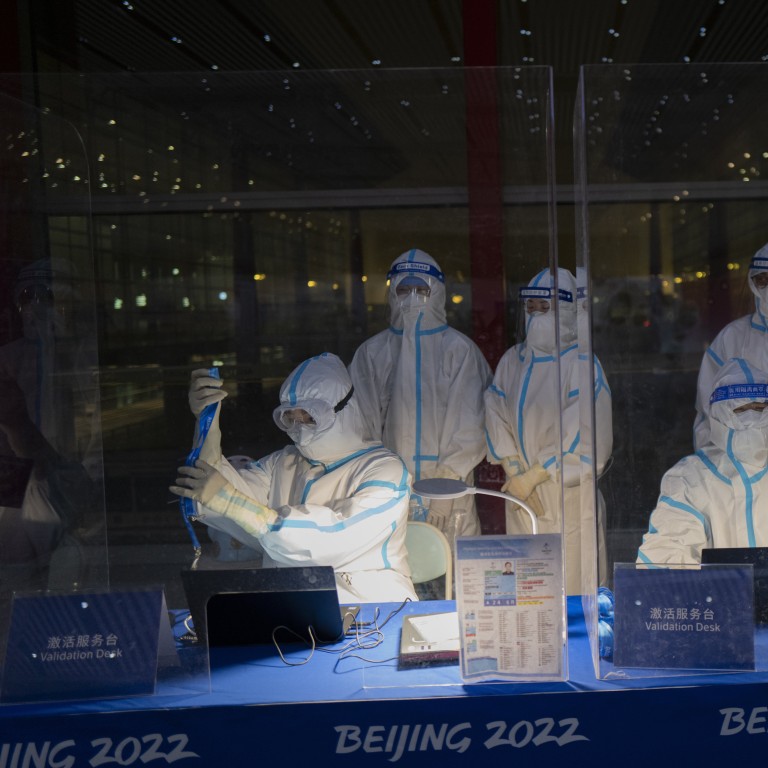
China’s zero-Covid border rules going nowhere this year
- Immigration body highlights raging pandemic outside China in call to ‘reduce cross-border flows’ but promises flexibility
- Move was widely expected, given the Beijing Winter Olympics, ‘two sessions’ and 20th party congress coming up this year
The National Immigration Administration hinted as much on Thursday, as a spokesman called on people to reduce cross-border activities this year if the trip was “not urgent, not necessary”.
“We should cherish China’s hard-won success [in controlling Covid-19] and reduce cross-border flows,” Chen said in response to a query on whether entry-exit controls would be loosened this year.
Under its zero-Covid strategy, China has tightened visa rules and banned the entry of most non-Chinese nationals, even if they hold valid papers
The stringent border policy, together with strict quarantine measures, was first put in place in March 2020, when China closed its borders to nearly all travellers as the coronavirus pandemic started spreading throughout Europe.
The rules have remained largely in place since then, helping authorities to contain the disease at home even as cases soared worldwide. However, they have also severely hindered international communication.
China limits outbound travel to protect against Covid-19 variants
The harsh border restrictions have been sharply criticised by international business groups, and have increased the risk of a foreign talent exodus.
Of nearly 600 companies surveyed last year by the German Chamber of Commerce in China, 72 per cent said the zero-tolerance approach affected mutual understanding. More than half said such policies deter foreign investment, while 45 per cent said they would lower China’s economic growth.
A survey by the American Chamber of Commerce in September also found that restoring regular visa services and travel channels for executives remained a top priority for the US business community.
Cross-border travel by foreigners plunged by 66 per cent last year, according to official Chinese data.
Chen said China had facilitated travel last year for personnel involved in certain business, trade and technology activities, especially Chinese nationals taking part in the global pandemic prevention work. Similar special arrangements will continue this year, he said.
“We’ll not adopt a one-size-fits-all approach. We’ll be flexible.”

It was widely expected that China would not ease Covid-19 controls ahead of three mega events this year.
“Safeguarding national security is always our top priority,” Chen said. “We will continue to work hard and pave the way for a successful 20th party congress.”


